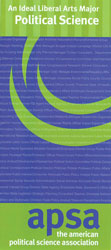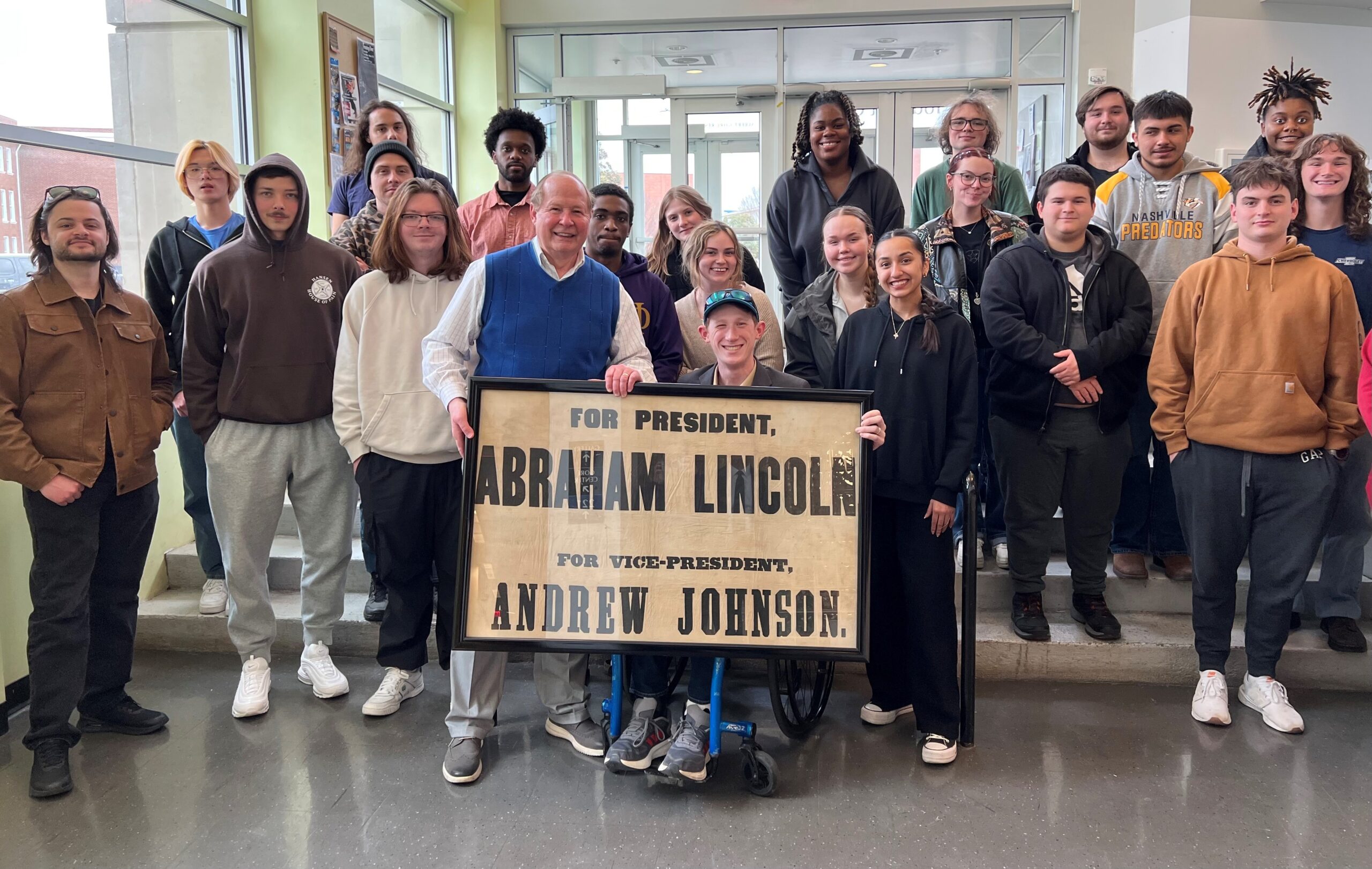Department of Political and Global Affairs
Career and Job Info
Earning your degree in Political Science, International Relations, or Global Studies and Human Geography is important. Once you have graduated with the degree, you want to work as a professional in the field, and you need to start planning for this now.
Check out Spotlight on Graduates to see where some of our PGA alumni work.
Five Steps to a Career in Your Chosen Field
If you start thinking about jobs a month before graduation, you are asking for a difficult path. Finding a professional job is itself a job—so work at it.
By the start of your senior year, you should be working on lists of potential employers, networking, a resume and cover letters, and practicing interview skills.
From the American Political Science Association


Planning ahead is planning for success!
Career Guides
- Political Science (general)International RelationsPublic PolicyPublic Administration/ManagementParalegal
- CareersWorking for the Federal Government
The first step in building the professional career you want is knowing what type of career you want. Knowing that “you really like politics,” or “really like the law,” or “really like international relations” is a starting point, but it is only a start. Ask yourself some hard questions:
- What is it about politics/law/international relations that you really enjoy?
- What types of careers are available that tap these specific aspects of the field?
- What types of skills and experiences, beyond the degree, are needed for these careers?
- How many people are hired in these types of jobs each year?
- What are the starting and maximum salaries for these types of jobs?
- Starting in these types of jobs, what are the opportunities for career advancement?
Finding answers to these questions will not happen spontaneously. You will need to take some time now and then and work at it. Use the resources here, talk to your academic advisor, and talk to individual professors who work in areas where you have a career interests.
Knowing where you want to go in your career, as early in your academic years as possible, helps you build the professional career you really want.
Plans ‘B’ and ‘C’
You should always have a Plan B and Plan C for your career, because sometimes things happen. Maybe you know that you want to be a corporate lawyer (this is Plan A) and you prepare for this path. But, life might intervene or there might be financial or GPA concerns that make going to law school right away a problem. Prepare with a Plan B and Plan C now—”I really want to be a corporate attorney, but I could also have a meaningful and successful life doing X or Y too.”—and prepare for these options as well.
Completing your courses and earning your degree will be essential to your professional career goals, but often particular skills or experiences are needed to land jobs in particular fields. There may be particular communication or financial skills, or relevant internship experience, that will help you get selected from the pool of job applicants and hired.
If you have followed the recommendations above and really thought through specific careers, your Plans A, B, and C, you can sketch out the skills and experiences that will help you get hired in these areas. Then, sit down with your academic advisor and professors and discuss what you can do NOW, while at MTSU, to get the skills and experiences you will need when on the job market. You can chose minors and internships and activities that will increase your chances of landing the career you want.
Alternatively, you could just wing it and hope you end up with the skills and experiences you need to get hired, but this is probably a losing strategy
Often, people think their main options as Political Science and International Relations majors are to go to law school or pursue a Ph.D., but there are many options for people who want to work as practitioners in the field.
Many schools offer 1 or 2 year specialized, career-oriented programs; you can complete one of these programs to enter the field at a higher level, or get an entry-level job in the area and then complete a program to advance and move up. These programs are much more targeted, practitioner-oriented, and shorter than law school or a Ph.D.
The links below give you an idea of the range of career areas you can move into. Each page has links to career-oriented masters and certificate programs in the area.
These lists of programs are not meant to be comprehensive, i.e., they do not include all available programs. Rather, they are intended to show that there are a lot of options in each of these career areas, and to provide a starting place for looking into available programs. If you are interested in these types of careers and programs, TALK TO YOUR ADVISER.
- International Affairs
- Political Campaign Management
- Environmental Policy
- Non-Profit Management
- International Security
- Urban and Regional Planning
- Public Policy
- International Peace and Conflict Resolution
- Education Policy
- International Development
- Social Justice
- International Human Rights
- Health Policy
- Homeland Security
- Social Entrepreneurship
- Public Policy and Management
There are many resources available for you to tap in planning your career. The first resource is your academic adviser, and all the other faculty in the Department are a second major resource. Talk to your advisor and talk to your professors!
Beyond these personal resources, there are others available on campus and online.
- MTSU Career Development Center
- Tips on How to Network Successfully
- How to Network: Tips for Introverts
- How to Write a Masterpiece of a Resume
- Cover Letters: Types and Samples
- How to Interview Effectively
- Job Search Etiquette: 5 Mistakes to Avoid
- Job Search E-mail Guidelines and Etiquette
The study of Global Studies and Human Geography opens many doors. Students develop transferable work skills that are highly valued by employers, including analysis, research, writing, problem solving, and, especially, knowledge of other cultures and languages.
Global Studies and Human Geography students are well prepared to move into professional careers. All students in the Global Studies concentration go abroad at least once and have a proven ability to thrive and succeed in a cross-cultural, globalized environment, and all students in the Human Geography concentration complete an internship and a series of professional skills courses.
Global Studies students graduate with skills valued by employers with global reach, and a majority move into:
- The non-profit sector, working in executive positions in domestic or global organizations dealing with a wide range of issues, including human trafficking, political refugees, migration, development, and trade.
- The for-profit sector, working both domestically and around the world for businesses with international operations.
- International education, teaching abroad.
- Graduate school.
Human Geography students graduate with skills that apply across multiple sectors, but valued a majority move into:
- City and regional planning, working with consulting firms or government agencies.
- The non-profit sector, working in executive positions across a wide range of domestic or global organizations dealing with migration, development, medical geography, and more.
- The parks and tourism industry.
- Graduate school.
For more information, read Building a Career in Global Studies and Human Geography.
- SALT International
- Foreign Service
- FBI, TBI, and Law Enforcement
- Legal Entities and Corporations
- Tennessee & National Park Systems
- Humanitarian Organizations
- Universities & School Systems
- Multinational corporations
- Peace Corps
- Nonprofit organizations
- Service agencies
- International education
